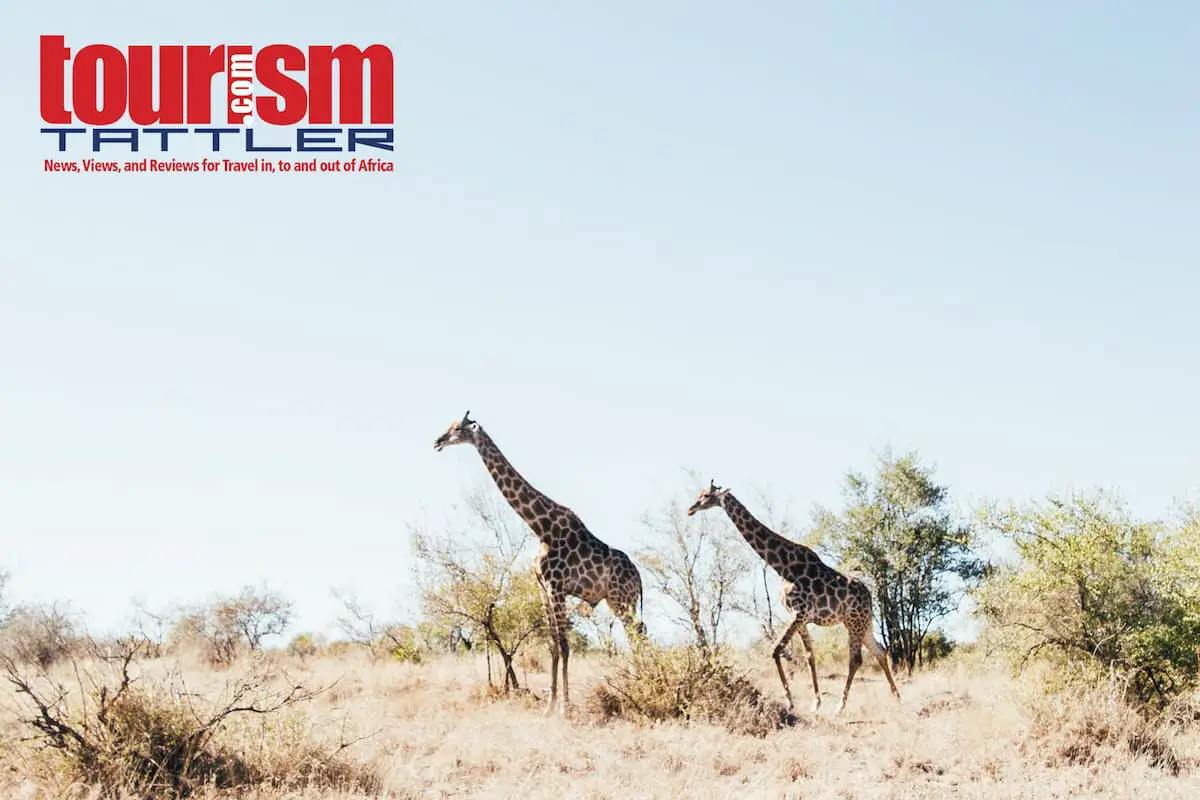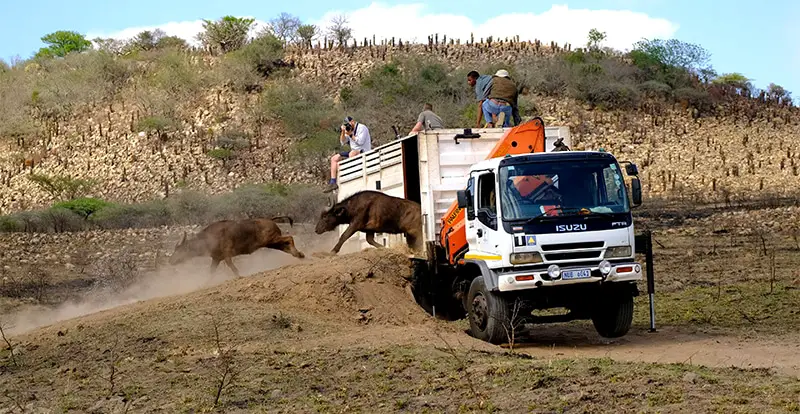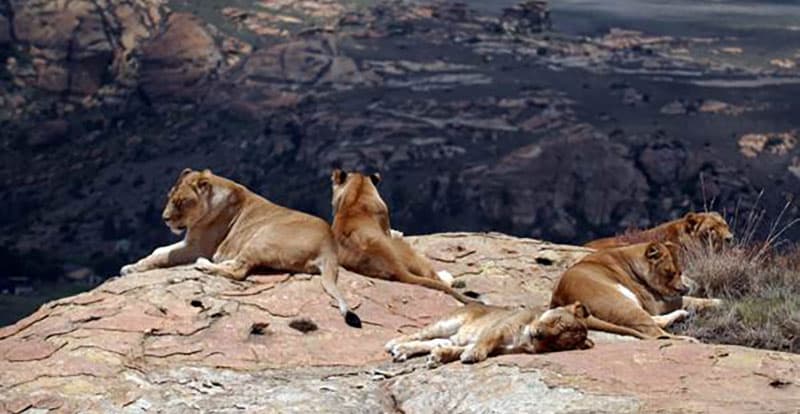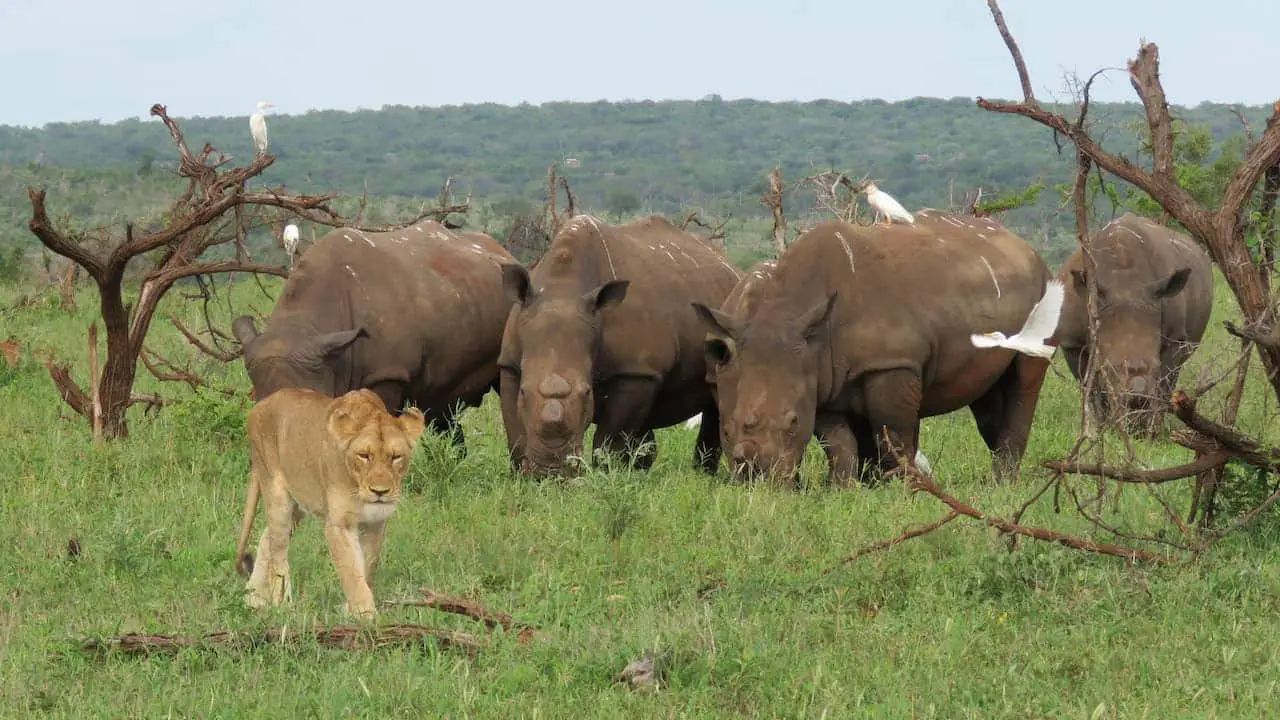First Captive-born Cheetah Released at Kuzuko Lodge
CAPE TOWN, Paarl, 07 September 2018 – Cheetah Experience Ashia hosted guests and media at their cheetah sanctuary today to officially announce and celebrate the release of their first captive-born cheetah into the protected wild at Kuzuko Lodge, a private game reserve in the greater Addo area of the Eastern Cape, managed by the Legacy Hotels & Resorts Group.
The four-year-old captive-born cheetah named Jasmin, the first feline to be chosen by Ashia Cheetah Conservation – a registered non-profit company set up to finance and manage the Release Programme of Ashia – made her way to her new home on Wednesday 29 August following a smooth and uneventful seven-hour drive from Cheetah Experience Bloemfontein, a partner project owned by Riana van Nieuwenhuizen, a director of the sanctuary and a board member of the non-profit company.
Addressing guests, Ashia’s co-founder Stephan Illenberger said: “The cheetah has become Africa’s most endangered big cat. From a count of 100 000 in 1900, the numbers have dropped to under 7 000 today. Ethical breeding in captivity has become essential to ensuring the long-term survival and viable genetic diversity of the species. The release of a captive-born cheetah into the wild – the first of many to come for Ashia – is a true win for conservation on numerous fronts, with a large part of the achievement being due to the successful collaboration between the various stakeholders involved.”
“After initial visits to Kuzuko Lodge, it was found that this private game reserve would be the ideal location for the first release of an Ashia cheetah into a protected wild area. The experience, passion and dedication shown by Kuzuko’s rangers for cheetahs and other big cats, as well as the suitable terrain, stunning location and substantial size of the reserve, convinced us that we had found the right place for Jasmin to take her first steps into the wild. Furthermore, Kuzuko Lodge is a member of Inqo Investments Social Impact Investment Group, which combines job creation, conservation and transformation,” said Illenberger.
Gerhard de Lange, Reserve General Manager at Kuzuko Lodge, told guests that Jasmin was released into a boma on her arrival at Kuzuko Lodge. This special enclosure will be her initial home for a short period where she will be encouraged to acclimatise to her new surroundings. From here, Jasmin will be released into a larger 300 ha enclosure, the next step in her integration before her eventual release into the expanse of the 15 000 ha reserve.
“There are a number of factors to consider when ‘wilding’ a cheetah born in captivity. Firstly, they need to have the right fight and flight responses, which can be evidenced in the way they feed and how they engage with people. Jasmin ticked all the boxes and in her short time in the boma, she is already exhibiting numerous traits that we believe will assist her smooth transition into the greater Kuzuko. So far she has settled in well and will soon be introduced to the other two resident male cheetahs on the reserve,” said de Lange.
According to De Lange, while Jasmin is in the 300-ha area, a gradual process of introduction to a small and well-monitored lion pride will be undertaken, allowing her natural protective instincts to kick in. Lions are generally a cheetah’s biggest threat in a wilderness area; by letting the lions come up to the fence Jasmin will be afforded the opportunity to identify them as a threat in her new environment, allowing her to respond accordingly once she is released into the reserve.
Daily monitoring is currently being undertaken by the Kuzuko conservation team, and Jasmin has been fitted with a tracking collar to enable them to keep a close eye on her once she is released into the larger enclosure.
“Like Jasmin, further captive-born cheetahs will be released into the protected wild of select Private Game Reserves in South Africa, through Ashia’s Release Programme. Several potential game reserves have already been identified and visited and are in the process of applying for the necessary permits,” concluded Illenberger.
Presenting an overview of cheetah populations in South Africa, Vincent van der Merwe, the Endangered Wildlife Trust’s Cheetah Metapopulation Co-ordinator – Carnivore Conservation Project, said that the country currently has a metapopulation of just 351 cheetahs situated in 54 small fenced reserves and that 1 000 cheetahs are needed for a genetically viable population.
“Of these, about 60% are adults and there are almost twice as many males to females, so it is absolutely necessary to move individuals between reserves in order to maintain the genetic and demographic integrity of the metapopulation,” said van der Merwe.
A metapopulation is a group consisting of the same species but separated by space. Ideally, these spatially separated populations should interact as individual members move from one population to another.
“There are about 67 captive facilities in South Africa that house approximately 600 cheetahs. Of these, most claim to be releasing them back into the wild, but, in reality, only Ashia/Cheetah Experience and DeWildt are actually doing so,” van der Merwe said.
One of the roles of the EWT Metapopulation project is to provide management advice to reserves who want to reintroduce cheetahs. Through the establishment of management clusters, the project hopes to develop networks of expertise, to facilitate communication and information sharing.
“Our aim is to reverse the ‘Cheetah Sink’ from captive populations to fenced metapopulations, and finally to free-roaming metapopulations. Currently, there is a demand for 32 females and 33 males, bringing the total to 65 cheetahs required for 25 new and existing reserves.
“We need new genetics and the time has come for the captive cheetah community to play their part. The reality is that captive cheetah facilities have no conservation value unless they are contributing to the conservation of wild cheetah. It is for this reason that I applaud Ashia/Cheetah Experience on the release of their first captive-born cheetah into the protected wild of Kuzuko Lodge reserve,” van der Merwe concluded.
Read more on this topic: The Plight of Africa’s Cheetah





